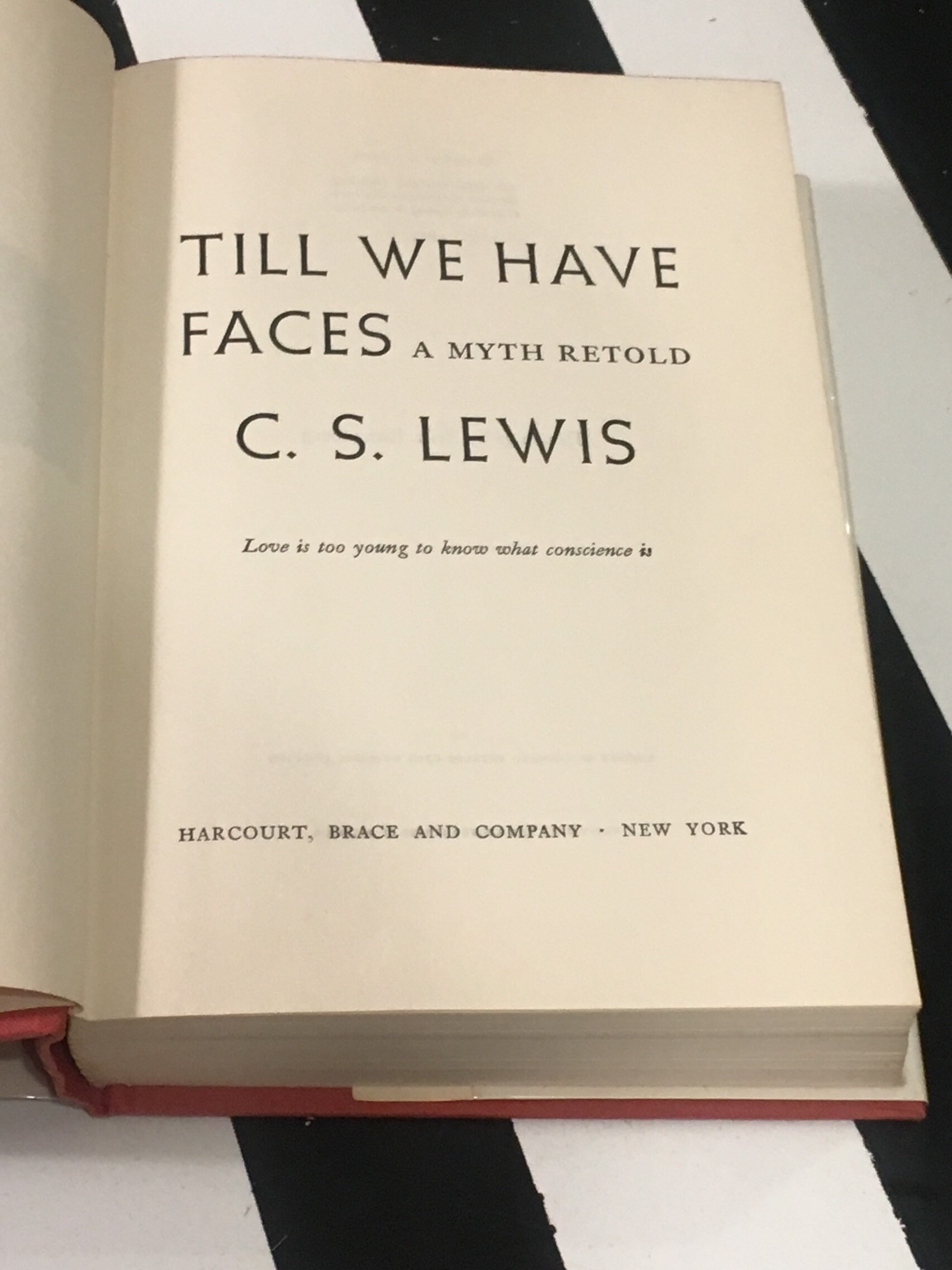

It begins as the complaint of Orual as an old woman, who is bitter at the injustice of the gods. The story tells the ancient Greek myth of Cupid and Psyche, from the perspective of Orual, Psyche's older sister.

Ungit: goddess of Glome, equivalent to Aphrodite/ Venus.Fox (Lysias): Greek slave who acts as tutor and counsellor, a follower of Stoicism.Argan: another prince of Phars, defeated by Orual.Daaran: son of Trunia and Redival, nephew and heir of Orual.Trunia: prince of the neighbouring country of Phars, marries Redival.Psyche: Orual's Greek nickname for Istra.Istra: youngest daughter of Trom, half sister of Orual and Redival.Maia: Psyche's Greek nickname for Orual ( μαῖα, Greek for "foster-mother").In the second part of the book, the narrator undergoes a change of mindset (Lewis would use the term conversion) and understands that her initial accusation was tainted by her own failings and shortcomings, and that the gods are lovingly present in humans' lives. The story is set in the fictive kingdom of Glome, a primitive city-state whose people have occasional contact with civilized Hellenistic Greece. The first part of the book is written from the perspective of Psyche's older sister Orual, as an accusation against the gods. This was his last novel, and he considered it his most mature, written in conjunction with his wife, Joy Davidman. As a consequence, his retelling of the story is characterized by a highly developed character, the narrator, with the reader being drawn into her reasoning and her emotions. This story had haunted Lewis all his life, because he realized that some of the main characters' actions were illogical. It is a retelling of Cupid and Psyche, based on its telling in a chapter of The Golden Ass of Apuleius. Till We Have Faces: A Myth Retold is a 1956 novel by C.


 0 kommentar(er)
0 kommentar(er)
